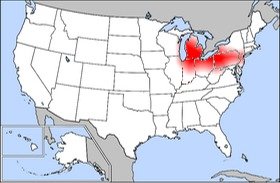The Domestic Politics Behind the New US Tariffs
As of Thursday, the US added a 25% tariff on steel and a 10% tariff on aluminum coming from Canada, Mexico, and the EU. Most likely, these countries will retaliate with tariffs of their own and take this to the WTO. The criticisms coming from outside the US seem to be that this unfairly targeted our allies, was not about national security, and was illegal.
Read more about this at https://www.usatoday.com/story/news/politics/2018/05/31/trump-follows-through-steel-aluminum-tariff-threat-u-s-allies/658835002/ or https://www.npr.org/sections/thetwo-way/2018/06/01/616074574/u-s-steel-and-aluminum-tariffs-are-illegal-eu-trade-commissioner-says
The problem is that these criticisms don’t matter to the Trump administration because this is mostly about domestic politics. Trying to get better trade deals might be a potential side benefit but this is really about the internal political situation in the US.
These promises about “getting tougher on trade” were a large part of the reason Trump won the presidency. The rust belt, the former center of US manufacturing, has felt abandoned by politicians for a long time. Trump took advantage of this.

(Here is a rough estimation of the rust belt. It’s actually a bit larger than this. It may look small, but this area is very politically significant.)
Background
The displacement due to free trade escalated starting in the late 1970s. Shortly afterwards, the Reagan Revolution happened and the social safety net was slashed. Trade Adjustment Assistance has done very little to help people transition to these dramatic changes in the economy, whether they be due to outsourcing or automation. About 6.4 million manufacturing jobs were lost from 1979-1999 alone. This trend has only continued and outsourcing has become a problem even in other industries, including the service industry (which trade adjustment assistance barely covers and only since 2009).
Read more about the failures of US Trade Adjustment Assistance here http://www.demos.org/sites/default/files/publications/Broken_Buffer_FINAL.pdf
The other problem is the Trade Adjustment Assistance only applies when there is a direct link between the jobs lost and a free trade agreement. That is not the only way these deals affect communities. My mother’s family is from Pittsburgh, “The Steel City”. Half the city’s population left when the steel industry collapsed. Obviously, half the city’s residents weren’t employed in the steel industry. But when a huge section of your population is suddenly gone, you don’t need as many restaurants, car services, hospitals, schools, etc. Housing prices plummet to the point where some people just straight up abandon their houses. Localities no longer have the tax base to maintain basic infrastructure. As the business situation becomes more chaotic, other corporations unrelated to steel just leave because they don’t want to deal with the risks of an unstable market.
Do free trade agreements lead to more economic growth overall? Yes, but the growth is not benefitting the people from the parts of the country that have lost the most. The fact that it might look better on paper means nothing to them.
No, it does not make sense outside of a domestic context
It does not matter if the EU does not think these tariffs are for national security reasons. Trump made that justification so he could make the decision to set up these tariffs unilaterally. Normally, Congress has a lot more power regarding trade, but that power is undermined if he uses the national security defense.
Trump has been selling the idea that the US is being taken advantage of by other countries in trade. Besides singling out China, he has not been very specific about which countries are doing this. That would be why Trump’s base and many other Americans don’t really care if this is aimed at our allies or our adversaries.
Despite the fact that the US was a major part of setting up this “free trade” system, the average American does not know what the WTO is and does not care about what it deems to be illegal.
Conclusion
Will these tariffs work? Probably not. This is especially true because these tariffs were so large and they were implemented in such a confrontational way. However, the critics of these tariffs will also be unsuccessful because they aren’t getting to the root of the problem.
Congratulations @aurora796! You have completed some achievement on Steemit and have been rewarded with new badge(s) :
Click on any badge to view your Board of Honor.
For more information about SteemitBoard, click here
If you no longer want to receive notifications, reply to this comment with the word
STOPCongratulations @aurora796! You received a personal award!
You can view your badges on your Steem Board and compare to others on the Steem Ranking
Vote for @Steemitboard as a witness to get one more award and increased upvotes!